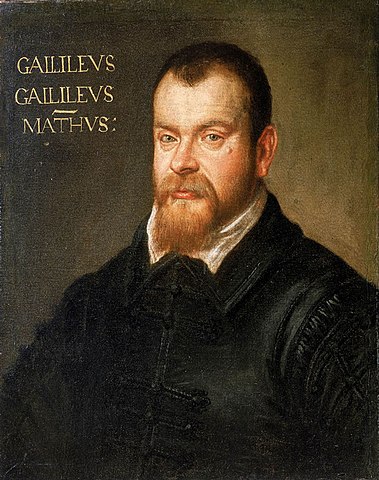This October, the OUP Philosophy team honors al-Kindī (c. 800-870) as their Philosopher of the Month. Known as the “first philosopher of the Arabs,” al-Kindī was one of the most important mathematicians, physicians, astronomers and philosophers of his time.
The post How much do you know about al‐Kindī? [quiz] appeared first on OUPblog.
This September, the OUP Philosophy team have chosen Hannah Arendt as their Philosopher of the Month. Hannah Arendt was a German political theorist and philosopher best known for coining the term “the banality of evil.” She was also the author of various influential political philosophy books.
The post How much do you know about Hannah Arendt? [quiz] appeared first on OUPblog.
In April this year, we questioned whether or not you could match the quote to the philosopher who said it. After demonstrating your impressive knowledge of philosophical quotations, we've come back to test your philosophy knowledge again. In this second installment of the quiz, we ask you if you can make the distinction between Aquinas, Hume, Sophocles, and Descartes?
The post Can you match the quote to the philosopher? Part two [quiz] appeared first on OUPblog.
The French celebrate their National Day each year on July 14 by remembering the storming of the Bastille, the hated symbol of the old regime. According to the standard narrative, the united people took the law in its own hands and gave birth to modern France in a heroic revolution. But in the view of Immanuel Kant (1724-1804), the famous German philosopher, there was no real revolution, understood as an unlawful and violent toppling of the old regime.
The post Was the French revolution really a revolution? appeared first on OUPblog.
Elijah Millgram, author of The Great Endarkenment, Svantje Guinebert, of the University of Bremen, to answer his questions and discuss the role of logic in philosophy. On other occasions, you’ve said that logic, at least the logic that most philosophers are taught, is stale science, and that it’s getting in the way of philosophers learning about newer developments. But surely logic is important for philosophers. Would you like to speak to the role of logic in philosophy?
The post The role of logic in philosophy: A Q&A with Elijah Millgram appeared first on OUPblog.
This May, the OUP Philosophy team are honouring Kierkegaard as the inaugural ‘Philosopher of the Month’. Over the next year, in order to commemorate the countless philosophers who have shaped our world by exploring life's fundamental questions, the OUP Philosophy team will celebrate a different philosopher every month in their new Philosopher of the Month series. Søren Kierkegaard (1813-1855) was a Danish philosopher, theologian, and the father of existentialism.
The post Philosopher of the month: Søren Kierkegaard appeared first on OUPblog.
Philosophy is one of the oldest fields of study in the world, branching out to various areas. How well do you know the writings of the most influential philosophers? Do you know the difference between sayings from Kant, Nietzsche, and Locke? Take the quiz below to see how well read you are in philosophy.
The post Can you match the quote to the philosopher? [quiz] appeared first on OUPblog.
To celebrate the publication of our second Philosophy Bites book, Philosophy Bites Back, authors Nigel Warburton and David Edmonds released a 39 minute podcast episode of a wide range of philosophers answering the question ‘Who’s Your Favourite Philosopher?’
Listen to Who’s Your Favourite Philosopher?
[See post to listen to audio]
Twitter Competition
We also asked you to let us know on Twitter who your favourite philosopher is and why. The competition is now closed and we received over 150 entries, which you can view on Storify. We can now reveal the winning entries, as chosen by Nigel Warburton and David Edmonds!
View the story “Philosophy Bites Back: The Winning Tweets” on Storify
David Edmonds is an award-winning documentary maker for the BBC World Service and a Research Associate at the Uehiro Centre for Practical Ethics at Oxford University. Nigel Warburton is Senior Lecturer in Philosophy at the Open University. They are co-authors of Philosophy Bites (OUP, 2010) and Philosophy Bites Back (OUP, 2012), which are based on their highly successful series of podcasts. You can also follow @philosophybites on Twitter.
Subscribe to the OUPblog via email or RSS.
Subscribe to only philosophy articles on the OUPblog via email or RSS.
The post Competition results: who’s your favourite philosopher? appeared first on OUPblog.

To celebrate the publication of our second Philosophy Bites book, Philosophy Bites Back, authors Nigel Warburton and David Edmonds have released a 39 minute podcast episode of a wide range of philosophers answering the question ‘Who’s Your Favourite Philosopher?’
Listen to Who’s Your Favourite Philosopher?
[See post to listen to audio]
 Twitter Competition
Twitter Competition
We’d like to hear who is your favourite philosopher. Pick your favourite philosopher and let us know why in a tweet (140 characters or fewer), incorporating the hashtag #philosophybites. We’ll be monitoring your suggestions from @oupacademic and @philosophybites. The competition closes on 10 January 2013 and our top five entrants will receive a copy of Philosophy Bites Back. The winning entries and a selection of shortlisted tweets will be posted to OUPblog in January 2013, and may well also appear in the next book in the Philosophy Bites series. To get you started, here are a few of ideas:
TIM CRANE: Descartes. Not because what I think what he said was true, but because he was incredibly clear in his vision of things.
ALAIN DE BOTTON: Nietzsche has a fascinating metaphysical structure to his thought, writes beautifully, and has a sense of humour.
RAYMOND GEUSS: Thucydides. My favourite philosopher because nobody else thinks he’s a philosopher, but I think he is.
BRIAN LEITER: Oh Fred. Nietzsche. I call him Fred. Because he’s a great writer, and he’s more right than wrong about most of the things he has views on.
GALEN STRAWSON: Kant. Every time I hear the words the Critique of Pure Reason I involuntarily salivate.
Good luck!
David Edmonds is an award-winning documentary maker for the BBC World Service and a Research Associate at the Uehiro Centre for Practical Ethics at Oxford University. Nigel Warburton is Senior Lecturer in Philosophy at the Open University. They are co-authors of Philosophy Bites (OUP, 2010) and Philosophy Bites Back (OUP, 2012), which are based on their highly successful series of podcasts. You can also follow @philosophybites on Twitter.
Subscribe to the OUPblog via email or RSS.
Subscribe to only philosophy articles on the OUPblog via email or RSS.
Image credit: Twitter ‘t’ icon by mfilej, Flickr.
The post Competition: who’s your favourite philosopher? appeared first on OUPblog.

By John L. Heilbron

Galileo Galilei by Domenico Tintoretto, 1605-1607.
Galileo is not a fresh subject for a biography. Why then another? The character of the man, his discovery of new worlds, his fight with the Roman Catholic Church, and his scientific legacy have inspired many good books, thousands of articles, plays, pictures, exhibits, statues, a colossal tomb, and an entire museum. In all this, however, there was a chink.
Galileo cultivated an interest in Italian literature. He commented on the poetry of Petrarch and Dante and imitated the burlesques of Berni and Ruzzante. His special favorite was Ariosto’s Orlando Furioso, which he prized for its balance of form, wit, and nonsense. His special dislike was Tasso’s Gerusalemme Liberata (The Liberation of Jerusalem), which violated his notions of heroic behavior and ordinary prosody. Galileo tried his hand at sonnets, sketched plots in the style of the Commedia dell’Arte, and delivered much of his science in dialogues.
The literary side of Galileo is not a discovery; a large specialist literature is devoted to it. But there is a gap in scholarship between the literary Galileo and the rest of him. How were his choices in science and literature complementary and reinforcing? What might be learned from his pronounced literary preferences about the unusual and creative features of his physics? How does Galileo’s praise of Ariosto and criticism of Tasso, on the one hand, parallel his embrace of Archimedes and rejection of Aristotle on the other?
Usually Galileo enters his biography already possessed of most of the convictions and concerns that prompted his discoveries and precipitated his troubles. One reason for endowing him with such precocity is that the documentation for his life before the age of 35 is relatively sparse. In contrast, a quantity of reliable information exists for his later life, after he had transformed a popular toy into an astronomical telescope and himself from a Venetian professor into a Florentine courtier (that happened in 1609/10 when he was 45). By paying attention to his early literary pursuits and associates, however, it is possible to tease out enough about his circumstances as a young man to give him a character different from the cantankerous star-gazer, abstract reasoner, and scientific martyr he became.
A quarrelsome philosopher, half-professor and half-courtier, whose discoveries refashioned the heavens and whose provocative use of them brought him into hopeless conflict with authority, is an attractive subject for portraiture. Add Galileo’s life-long engagement with imaginative writing and the would-be portraitist has his or her hands full. But the resultant picture, even if well-executed, would be a caricature. Galileo initially made his living and gained his reputation as a mathematician. Leave out his mathematics and you may have a compelling character, but not Galileo.
The mathematician and the littérateur have different ways of arguing. To fit together, one sometimes must give way. Galileo’s great polemical work, Dialogue on the two chief world systems, which misleadingly resembles a work of science, frequently privileges rhetoric over mathematics. When the scientific arguments are weakest, the two protagonists in the Dialogue who represent Galileo (his dead buddies Salviati and Sagredo) outdo one another in praising his contrivances and in twitting the third party to the discussions, the bumbling good-natured school philosopher Simplicio, for ignorance of geometry.
The mathematical inventions of the Dialogue that Galileo’s creatures noisily rate as unsurpassed marvels are precisely those that have given commentators the greatest difficulty. These inventions are extremely clever but evidently flawed if taken to be true of the world in which we live. Commentators tend either to interpret the cleverness as shrewd anticipations of later science or to condemn the shortfalls as just plain errors. From my point of view, these marvels should be interpreted as literary devices, conundrums, extravaganzas, inventions too good not to be true in some world if not in ours. They are hints at the form, not the completed ingredients, of a mathematical physics. Galileo’s old Dialogue and today’s Physical Review belong to different genres. Unfortunately, just as the Dialogue was not intended to meet the requirements of accuracy and verisimilitude of modern science journals, so the journals don’t reward the sort of wit and style with which Galileo brought together his literary aspirations, polemical agenda, and scientific insights.
John Heilbron is Professor of History and Vice Chancellor Emeritus of the University of California at Berkeley. One of the most distinguished historians of science, his books include Galileo, The Sun in the Church (a New York Times Notable Book) and The Oxford Companion to the History of Modern Science.
Subscribe to the OUPblog via email or RSS.
Subscribe to only physics and chemistry articles on the OUPblog via email or RSS.
Subscribe to only literature articles on the OUPblog via email or RSS.
View more about this book on the 





 Twitter Competition
Twitter Competition